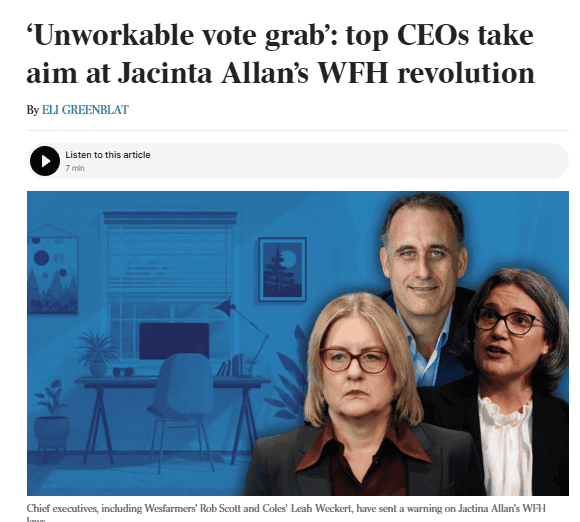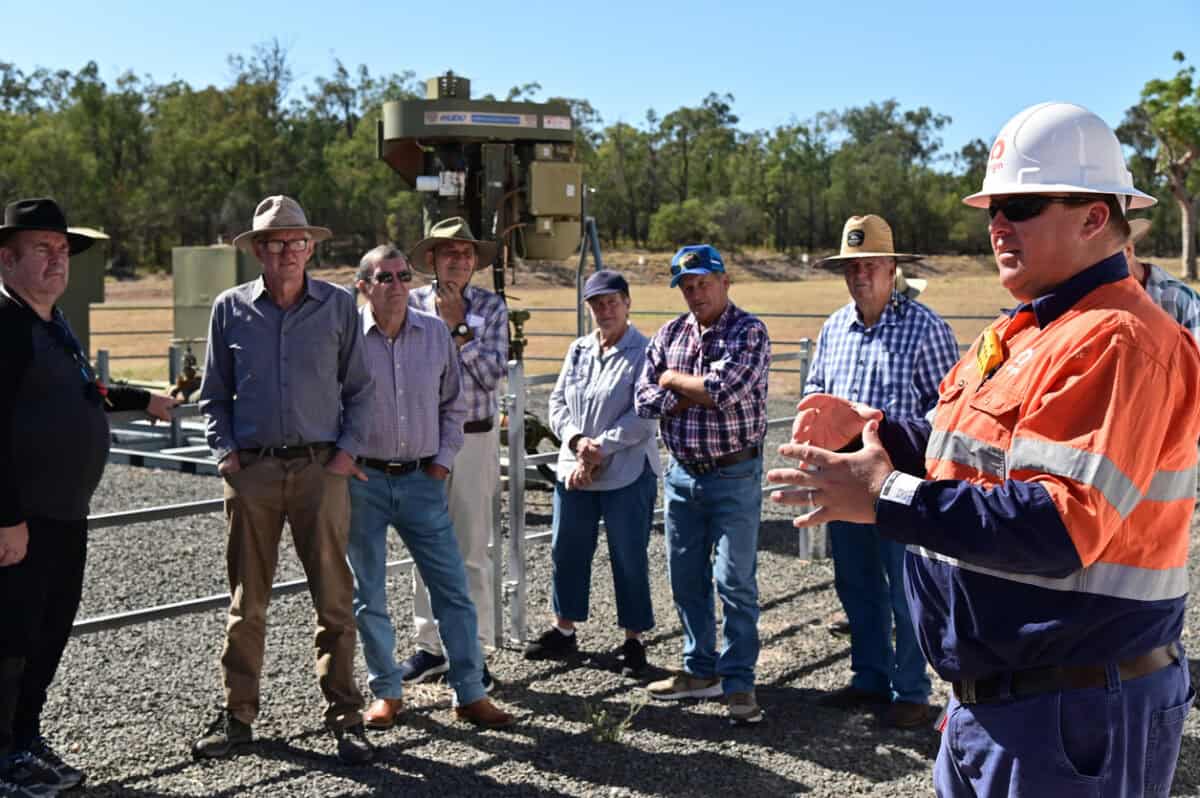Victoria’s consultation on its work-from-home proposals closes this weekend. The government has claimed over 18,000 submissions and interactions, but none of them are yet publicly available. The Business Council of Australia (BCA) has garnered recent media attention, pre-empting the closure of the consultation. The BCA could have a more mature discussion on the concept and practice of working from home, but perhaps it realises that the argument has already been lost.
Category: employers
Australian Football Needs Better Workers Compensation
[Guest post by Eric Windholz]
Last week I again had the pleasure to contribute to the Headfirst: A Concussion Podcast, this time talking about recent developments concerning the compensation of athletes (and in particular, AFL (Australian Football League) players) suffering concussion. The key takeaway – the more things change, the more they stay the same.
Continue reading “Australian Football Needs Better Workers Compensation”Why Leaders Still Miss the Hazards That Matter
We know what employers/leaders do or do not do about psychosocial hazards at work and the psychological impacts. But there is still insufficient discussion on why those leaders make those choices. Recently, Dr Caroline Howe came close to answering the “why” in a blog article for her Psychosocial Safety and Leadership Institute.
The Seductiveness of Action Without Change
The challenge in addressing psychosocial hazards at work comes not from the dangers posed but from the executives’ willingness to change. Recently, David Burroughs reflected on his years of advising executives on this hazard. Burroughs’ experience of corporate responses to workplace bullying is indicative of the challenge of organisational change.
Why are the bosses’ knickers in a twist over work-from-home?
Two major Australian media outlets are continuing to focus on the issue of working from home (WFH), criticising the concept and some local political moves. WFH offers some significant mental health benefits that are being largely ignored. The front page of The Australian newspaper for September 1, 2025, provides the latest example.
When Safety is Misunderstood
Discussion about workplace psychosocial hazards seems to be everywhere. This is a good thing, as everyone needs a better understanding of the risks workers face and what prevention mechanisms are expected from employers and business owners. But that discussion needs to be measured and accurate. A recent article written about this issue for accountants is slightly inaccurate about occupational health and safety (OHS).
Who Gets to Be Called a Leader
Lisa Leong has followed up her This Working Life podcast with a more detailed look at the practicalities of addressing work-related psychosocial hazards with Dr Laura Kirby. It is worth listening to, but there is a term repeated in the podcast that needs examining – “leader”.







